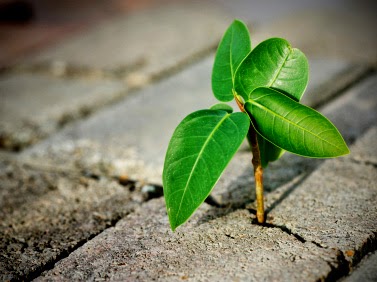Courage is a Verb
Those of us blessed to have friends in faith traditions other than our own are finding some comfort in our solidarity. We are reaping what we’ve sowed and are coming together to share thoughts, voice fears, and pour out our grief.
Those of us who work in interfaith relations acknowledged through our tears that much of the heartbreak is rooted in senseless ignorance of The Other.
One response to these tragedies can be a re-dedication to our work: the work of listening to those with whom we differ in order to obtain greater clarity and empathy; the work of learning from colleagues how to better engage in interfaith understanding; and the work of looking within ourselves for greater compassion and wisdom.
A second response is to join with others who are on the front line of this work.
Several weeks ago, I shared a blog from a Muslim leader who is participating in a program designed to build some understanding between Muslim and Jewish leaders in the US. In an appalling turn of events, Rabia Chaudry’s article entitled What a Muslim American Learned from Zionists generated hateful condemnation, vile blog comments, and worse from Muslims around the world. Jewish participants, too, encountered loathsome professional and personal attacks from within their own communities.
Ms Chaudry writes, “It [the program] was…kept under wraps for the most part because it was risky for all involved. Hartman lost funding, donors, and board members over this program. One of the organizers, Yossi Klein Halevi, lost credibility, friends, and supporters when he wrote this piece along with Imam Abdullah. Rabbi Sharon Brous, one of our lecturers, was destroyed in the Israeli media when she wrote a piece sympathetic to Gazans. Hartman is being accused of hosting terrorist sympathizers and we are being accused of being Occupation sympathizers. This is the cost of trying to work in gray spaces, I knew it, and I accepted it.”
She knew it and she accepted it.
If we believe in this work, if we are committed to building bridges of understanding between different faith communities, we must know and understand the cost, too.
Rabia, Yossi, Sharon, Abdullah, and others are putting their money where our mouth is. Their currency is courage. They’re taking the risks and making the sacrifices that we who sit in the comfort of our living room dialogue groups and institutional interfaith committees are unwilling to do.
Where are the Jewish voices standing with the Hartman Institute? Where are the Muslims defending and supporting the courage of Imam Antepli’s leadership?
Are we only willing to support interfaith engagement when the results are kumbaya and sanitized, or is there courage behind our convictions?
Chaudry writes in a later blog, “This fellowship proves that building relationships between people who fundamentally disagree can uncover empathy and mutual recognition that despite differences, everyone deserves dignity, security, prosperity and self-determination.”
Children are dying. We mourn.
We watch the news. We wring our hands.
We want an end to the violence. What more can we do?
We can support individuals and organizations who are on the leading edge in a profoundly brave way. Just as a fundraising challenge grant doubles the impact of a donor’s gift, our support of these leaders increases the impact of their work. And ours.
Last month, Pope Francis said, “Peacemaking calls for courage, much more so than warfare. It calls for the courage to say yes to encounter and no to conflict.”
Let us pray for the courage to say yes to the encounter. And, if we cannot find the courage to say yes to the encounter, let us pray for the courage to support those who can.
שלום עכשיו
Peace now
Comments are closed.




